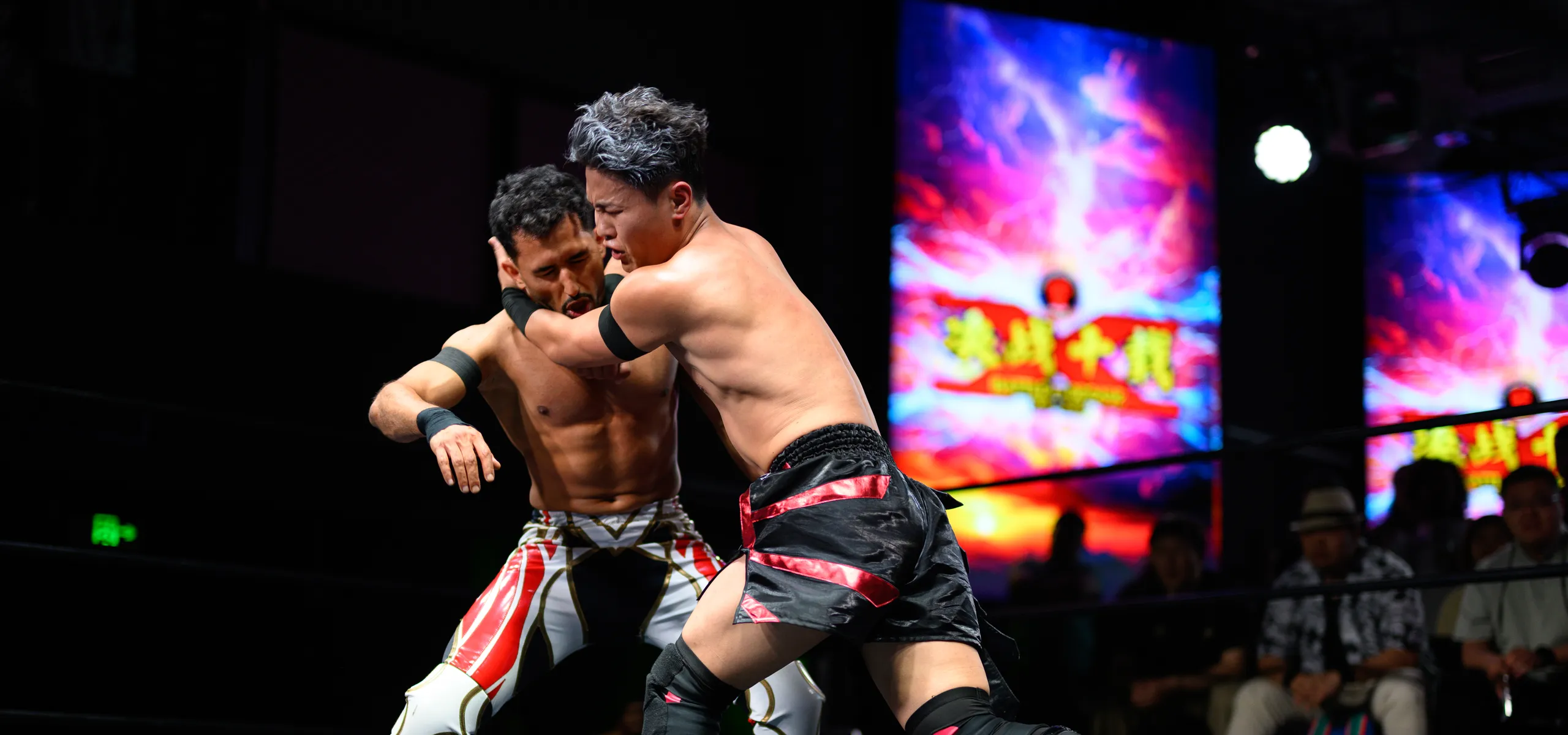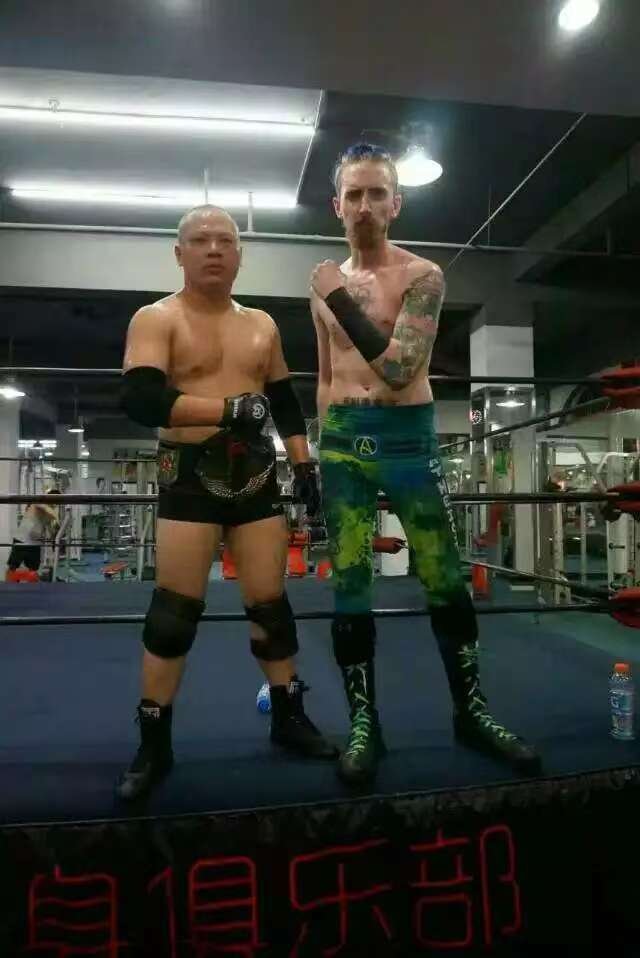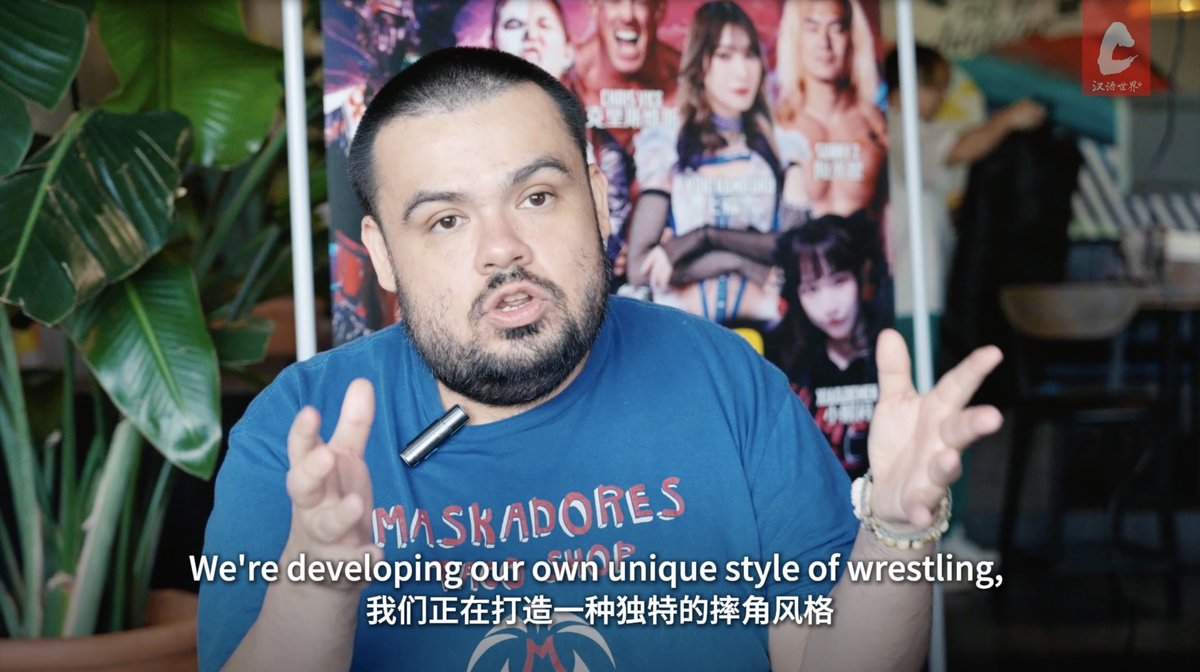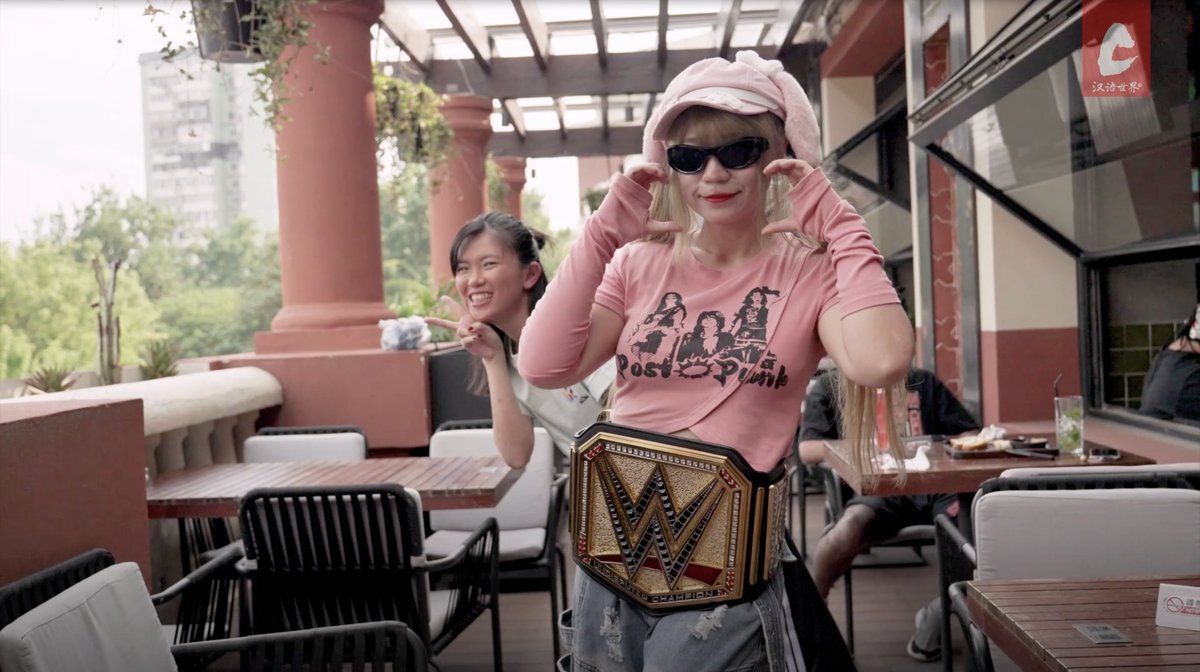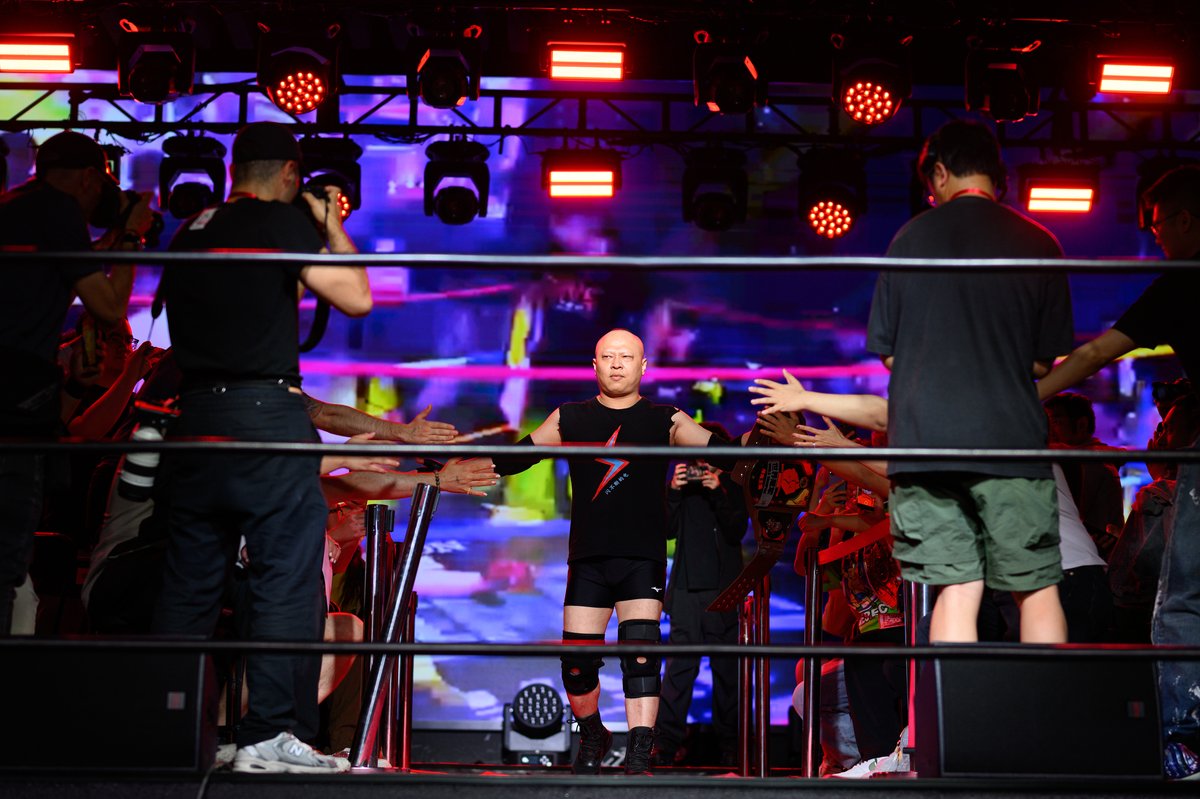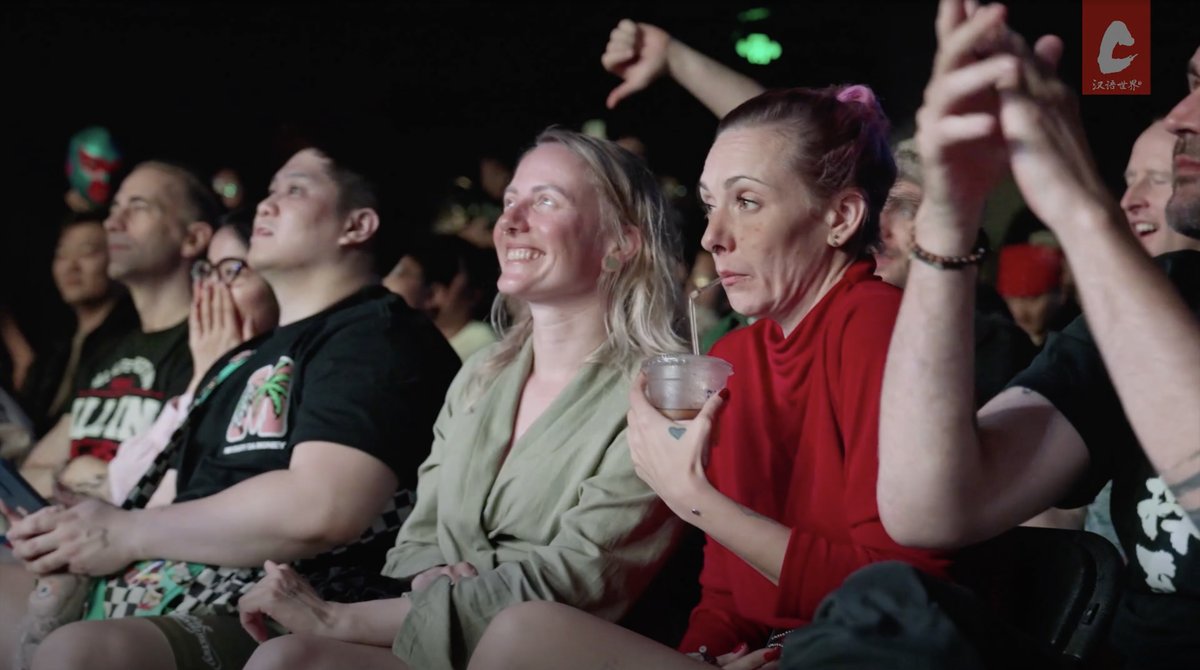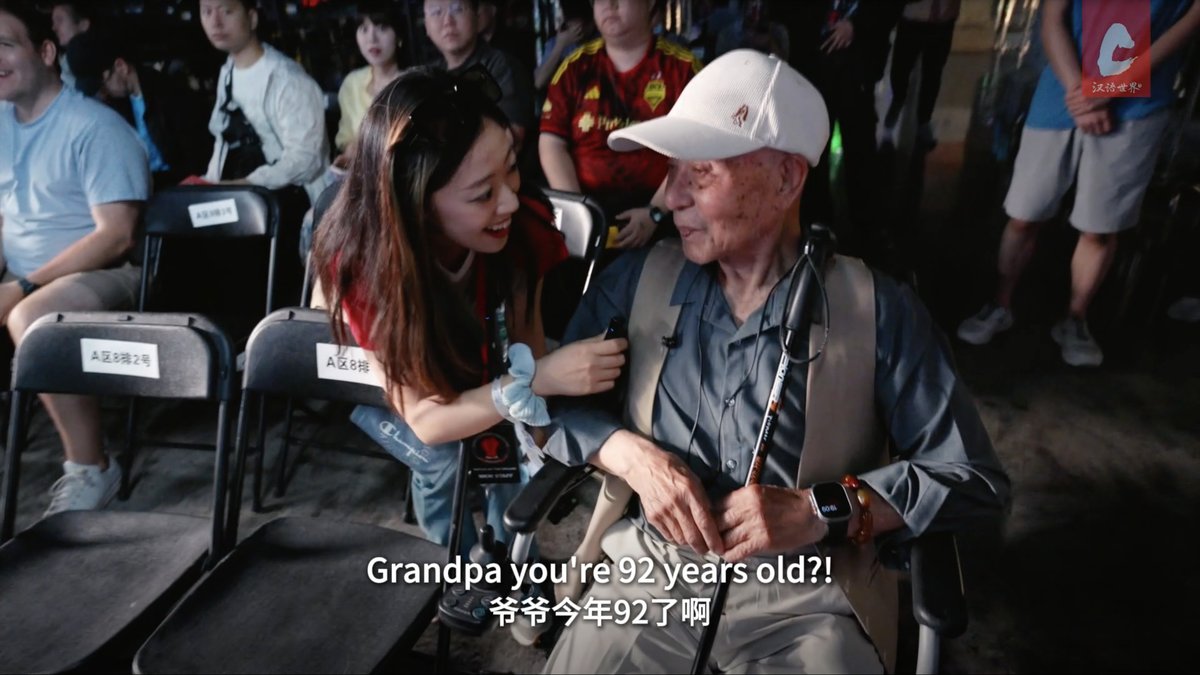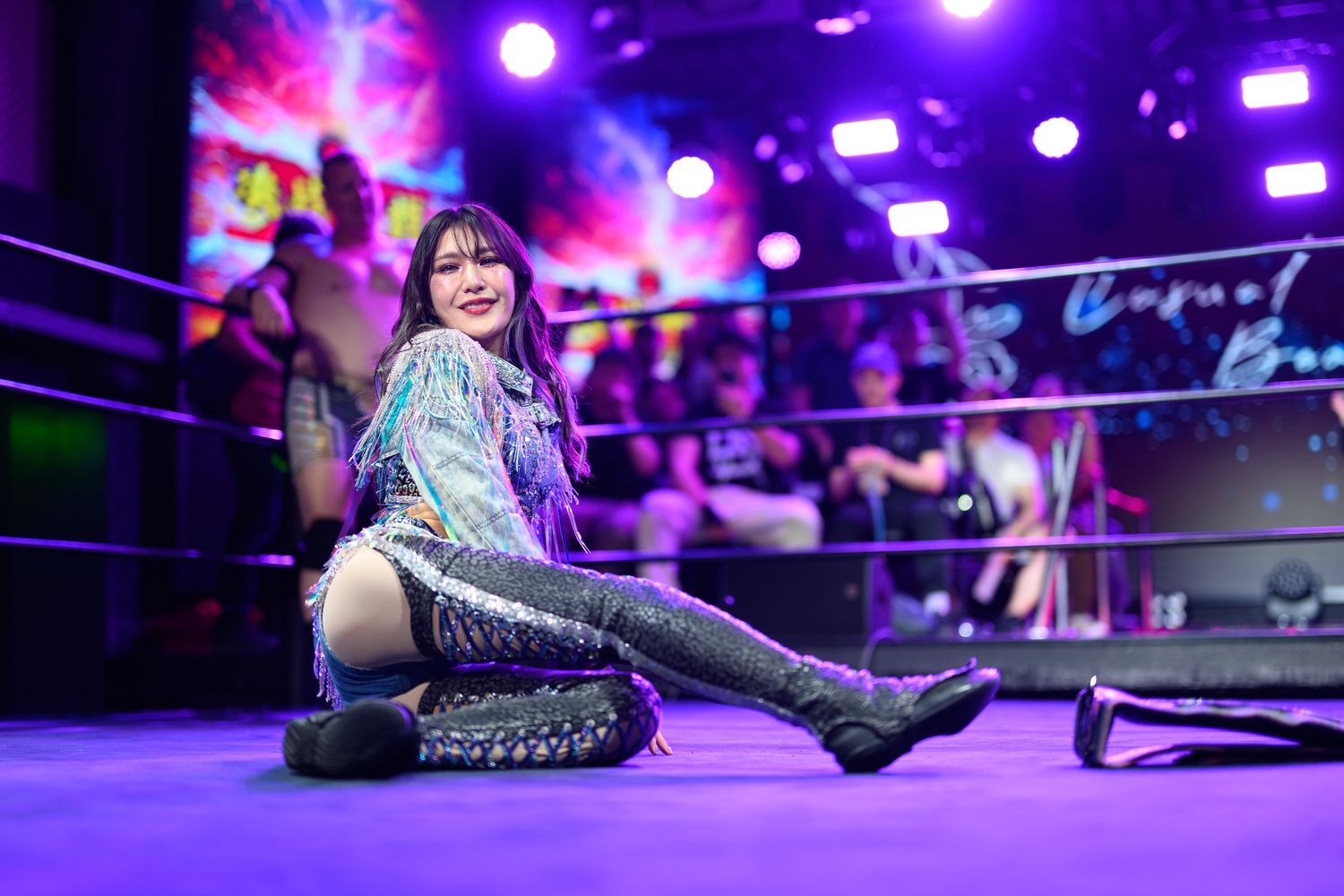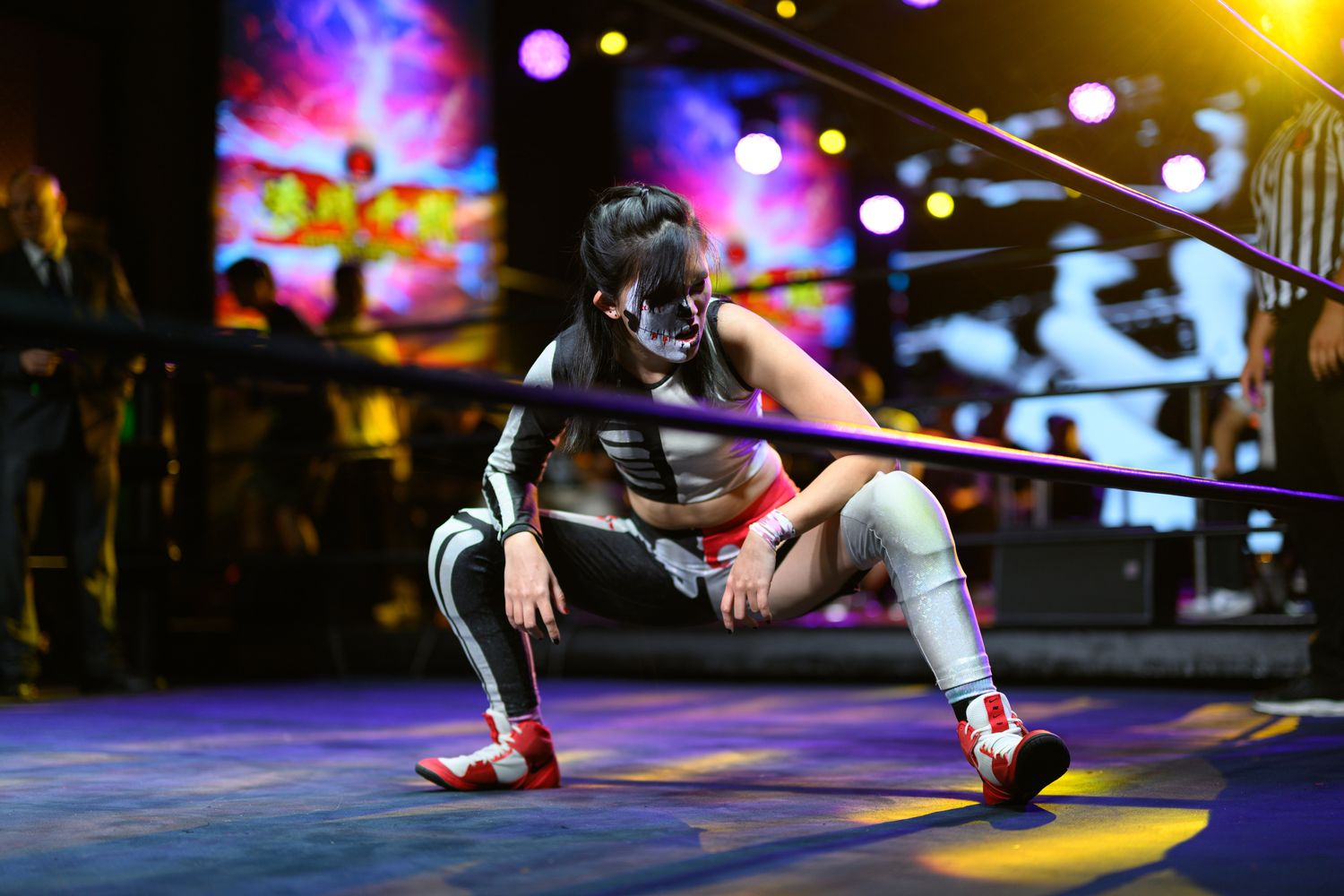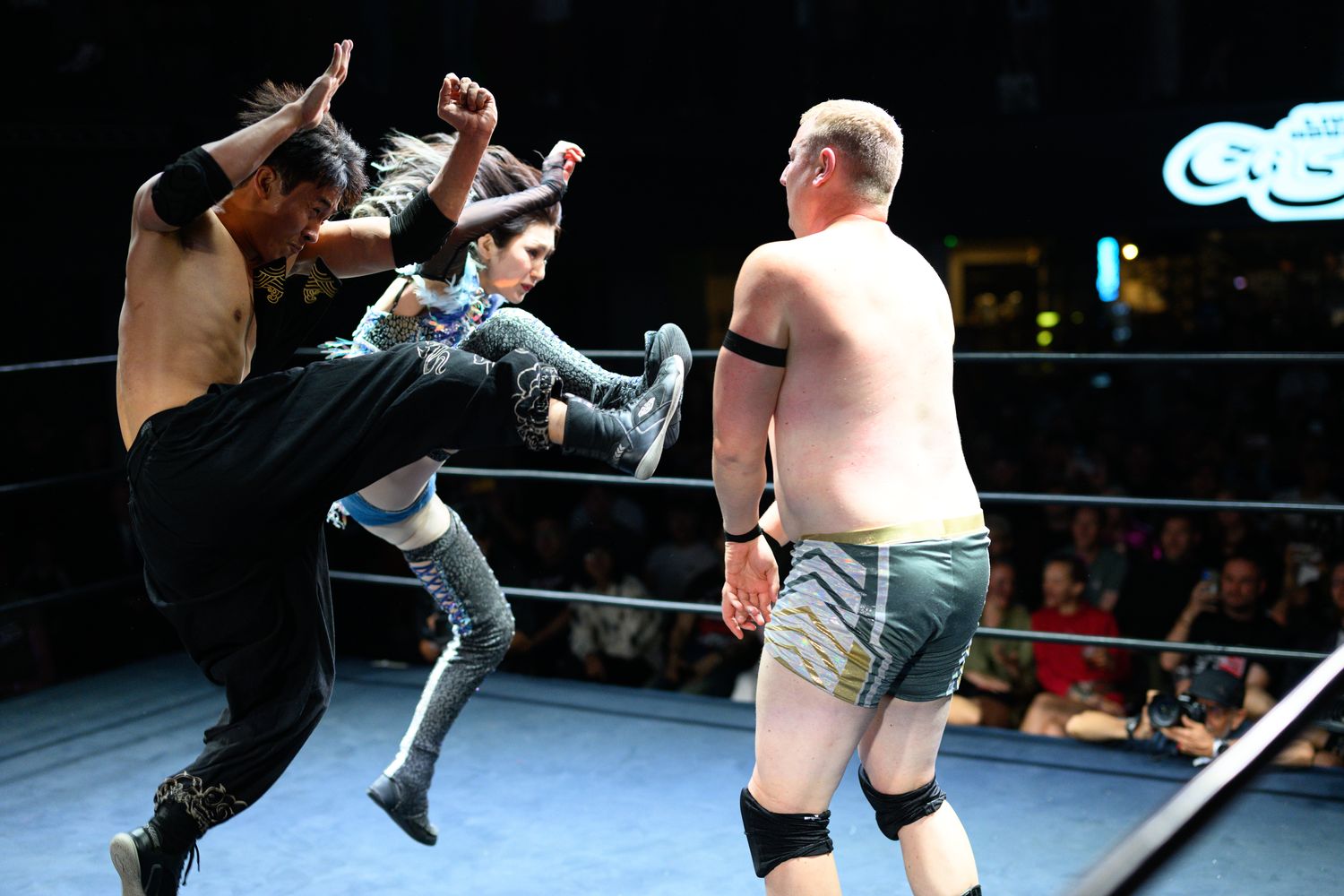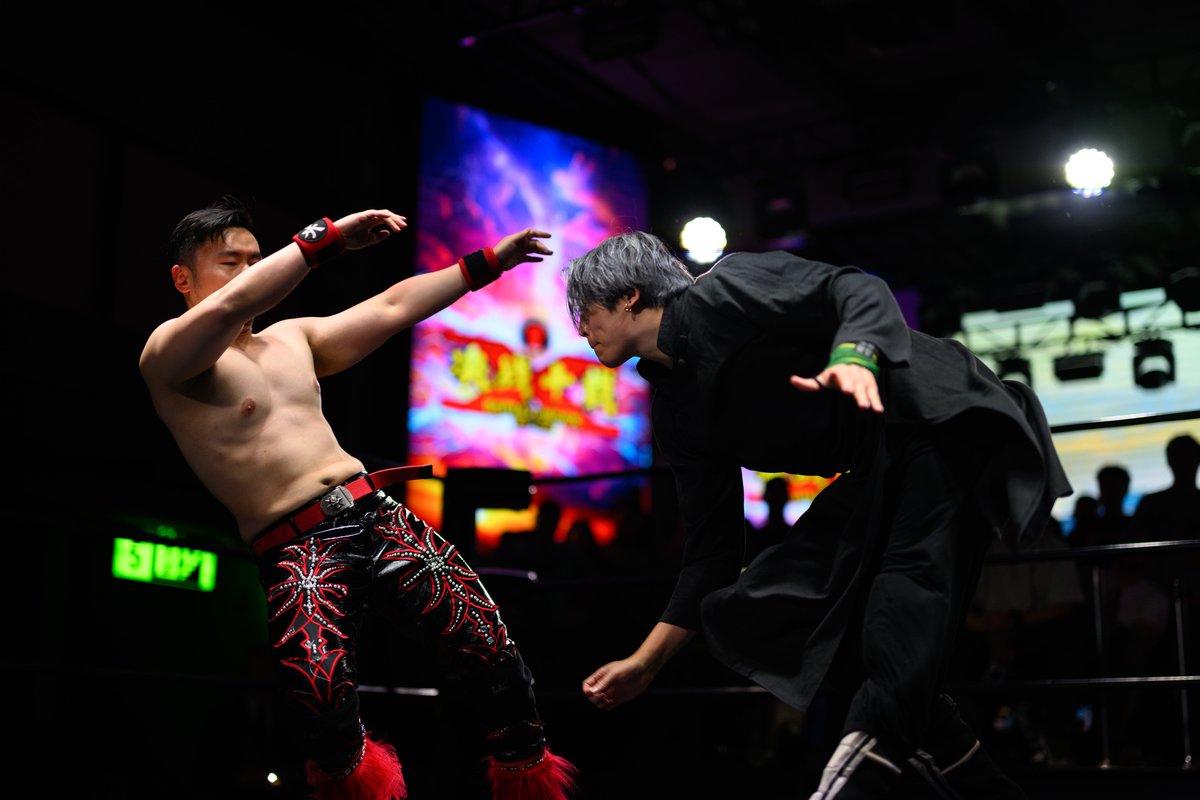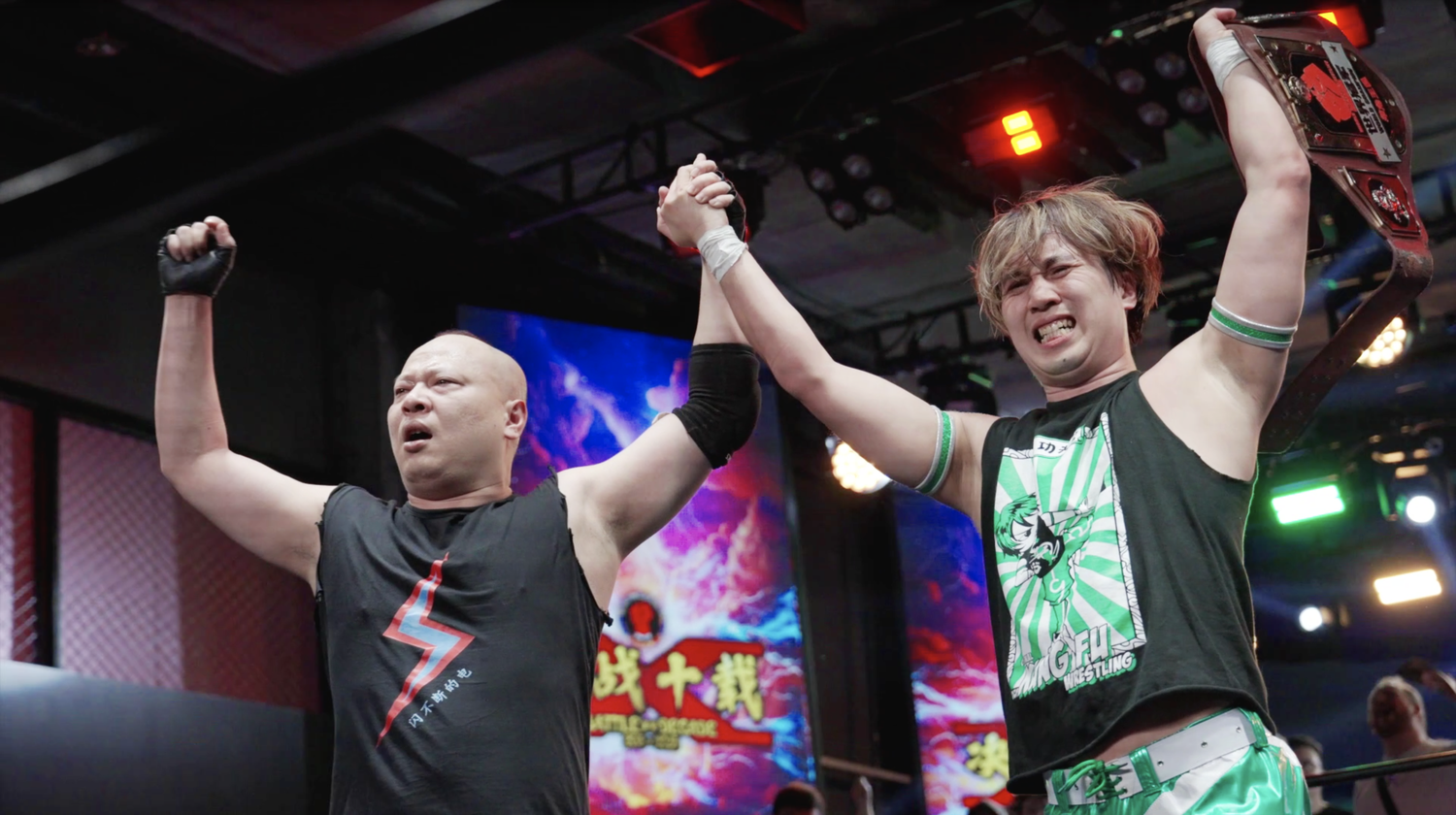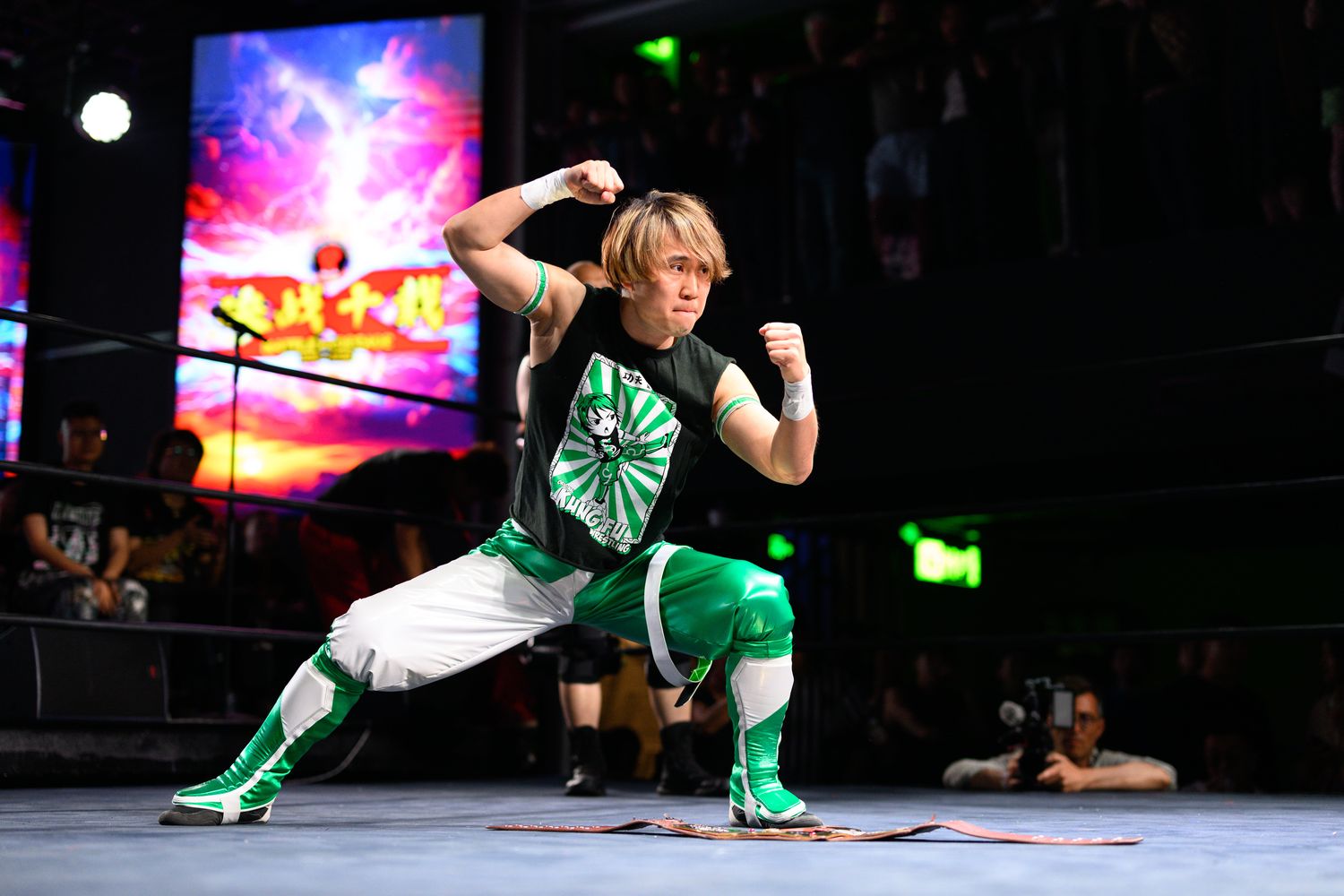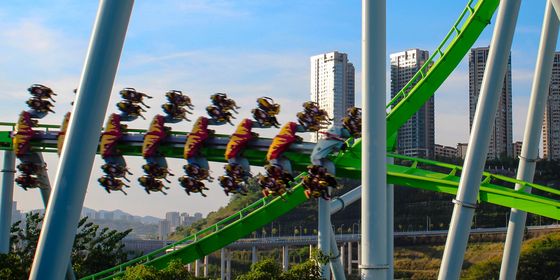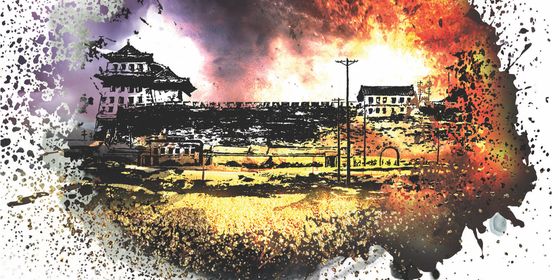Beijing hosted its first-ever pro wrestling event in May. The World of Chinese went behind the scenes to find out why people are happily paying good money to watch scripted fights.
The live house venue near Beijing’s Liangma River was steeped in shadow, absent the spotlights that bounced off the ring in its center. It was the afternoon of May 24th, hours before the capital’s first-ever professional wrestling match, and inside, wrestlers rehearsed in near silence, their muffled exchanges broken by the dull thunder of bodies hitting the mat. Each fall was measured, and their expressions remained mostly unchanged.
“Come take a look under the ring,” says Sunny Zhai, a pro wrestler from Thailand, breaking the silence. “A lot of fans in China are curious whether there are springs hidden inside. They’d say [to me], if not, how can we jump so high?” he jokes, pulling back the curtain to reveal the hollow space beneath.
It might sound like a silly question, but for many people in China, professional wrestling is still an unfamiliar spectacle. Unlike in the US, where professional leagues like the World Wrestling Entertainment (WWE) have become part of mainstream pop culture, pro wrestling here hasn’t fully taken root. Even with some Chinese wrestlers making it onto the international stage, many in the country are still puzzled by the appeal of these scripted battles, where wrestlers portray characters and the outcomes are predetermined.
But things are starting to change.
Sudden burst of fame
To Adrian Gomez, founder of Middle Kingdom Wrestling (MKW) and the organizer of the night’s event, pro wrestling is an art, much like an orchestra: the wrestler in the ring is the conductor, and together with their opponent, they guide the audience—whether to boo, cheer, cry, or laugh.
But when Gomez, an American who grew up on WWE, moved to China 15 years ago, he realized that most people here had never seen a match, and pro wrestling was still a rather foreign concept.
“If you say to a normal person in China: ‘What is shuaijiao (pro wrestling)?’...They will think it’s like the traditional Chinese martial art,” Gomez admits.”It’s really just a handful of people who are able to do this full-time.”
Fortunately, he did discover a small but passionate pro-wrestling community online. Wanting to give fans and wrestlers a proper platform, he founded MKW in 2015 and held its first match for free in a gym in Dongguan, Guangdong province.
“We didn’t have enough fans at first,” Gomez recalls. “Thirty minutes before the show, nobody was coming. I had to run outside and shout, ‘Free wrestling! Come in! Come in!’”
Now, on the 10-year anniversary of his organization, he finally brought pro wrestling to the nation’s capital, attracting not just expats but many locals, with all 400-plus tickets sold out.
One might assume that getting to this point required years of steadily growing a fan base—but that wasn’t the case. For a long time, most of the promotions in China, including MKW, dealt with money problems, especially during the pandemic when they couldn’t host shows and had to shut down their training centers, a major source of revenue. But everything changed last December, when videos of a pro wrestling performance at a Guangdong dim sum restaurant, organized as a birthday party treat, went viral online, turning pro wrestling matches into an overnight sensation. The most-watched video on streaming platform Bilibili has racked up over 6.8 million views.
“I believe dim sum wrestling is probably one of the biggest developments in wrestling in the last 10 years,” says Gomez.
Drawn in by the novelty, fans—many of whom had never heard of pro wrestling before—flocked to dim sum restaurants in Guangdong, happily paying a few hundred yuan to watch wrestlers slam each other on and off stage, right in their faces, between bites of steamed lobster and pork buns. According to media outlet Lanxiong Sports, since that first event, the dim sum wrestling team’s commercial bookings quickly filled up, with 16 shows scheduled in just under a month. The second event, held in Panyu, Guangzhou, sold out over 750 tickets in under two days, including private-box tickets priced at 2,000 to 3,000 yuan.
“People get so caught up in watching the match that many forget to eat. By the time they remember, many of the dishes have gone cold,” says the pro wrestling content creator and commentator for the night’s match, known by the handle Xiaojiemen on the video platform Bilibili.
Good and bad
“It’s unbelievable. We’ve been working hard for 20 years and nobody cared,” says Liu Xuanzheng, one of the wrestlers in the viral video that started the craze. Better known by his stage name The Slam, Liu was among the very first people to take up pro wrestling in China in the early 2000s. “If someone came up to me and said, ‘It would definitely be a hit if you held a wrestling match in a dim sum house,’ I would think he was crazy. But it turns out we were the ones being foolish, not him.”
Read more about the entertainment scene in China:
- Riding Solo: The Struggles of Roller Coaster Enthusiasts in China’s Sparse Thrill Scene
- Post-Pandemic, Are Chinese Music Lovers Ready to Rock Again?
- Zhang Weili and China’s Upcoming Fight of the Century
Gomez, for one, is thrilled about the sudden fame: “That is one example of how Chinese culture can marry with American pro wrestling to create a hybrid where it becomes uniquely Chinese.”
Xiaojiemen is even hoping that this model could be replicated in more Chinese cities, especially in the north, where the sport is even less well known: “I hope Beijing can host Peking duck wrestling or Peking opera wrestling. Chengdu could have hot pot wrestling. I think that would be really cool.”
However, this sudden attention has divided many of the original fans. “There are two camps,” says Gomez. “Some people think it’s really fun and entertaining. But there’s another camp that thinks this is so ‘low[brow]’ compared to WWE.”
Liu, who has mentored over 80 percent of all Chinese pro wrestlers, admits that while both professional matches and dim sum wrestling are meant to entertain, the latter is designed more for newcomers—people who aren’t already fans but just want to join in on the buzz. “Our professional wrestling matches are carefully planned, with extensive training and rehearsals. Dim sum or teahouse wrestling, on the other hand, is more commercial—it can only reach about 80 percent of what we normally deliver,” says Liu.
He also reveals that while the viral fame has created more gigs for him and his peers, their fees per event have actually dropped. “The market has grown so much that if one wrestler doesn’t show up, someone else can easily take their place. Overall, the fees are low—it’s a compromise: the venue earns something, the wrestlers earn something, and everyone has to give a little,” says Liu.
A night to remember
No matter what people think of the trend, MKW’s “Battle of the Decade” in the capital clearly benefited from the buzz, selling out days in advance and prompting the addition of 100 more standing tickets.
As about 500 people filled the venue, the quiet training ground from just hours ago erupted with laughter and excitement. People—whether newcomers or die-hard fans, expats or locals, young or old (including a 92-year-old grandpa in a wheelchair!)—sucked down cocktails, browsed merchandise, and eagerly waited for the action to begin.
“Before this, I didn’t know much about Chinese pro wrestling, so I took the chance to learn more about our local wrestlers and some of the other leagues here. After all, going to the US to watch matches isn’t exactly realistic,” says Yin Yikai, a fan who has been watching the WWE since 2007.
When the show kicked off at 7 p.m., the crowd—whether in the front row or standing in the back—burst into cheers, shouting for their favorite wrestlers and booing the “villains.” The primal instinct in everyone seems to awaken with every punch and throw.
“In real life, I’m bound by the law and can’t do anything too violent. But in the ring, I can unleash those primal, beastly instincts that humans had before we evolved,” explains Liu.
Aside from the modest setting and lack of star power, the energy felt every bit as electric as the WWE.
“I’ll never have WWE’s budget, but every time we present wrestling, we want to present it in a way where the production is good and the wrestling style is high,” says Gomez.
Indeed, wrestlers from both China and abroad put on a spectacle filled with colorful characters and dazzling moves, from a zombie dragon from the US and a J-pop idol to a Chinese opera performer and a martial artist.
“The WWE has a lot of resources for complicated plots. But we only have events every few months, so the plot might be less impressive,” says Liu.
While the night’s matches mostly followed the classic hero-versus-villain storyline, they still carried a distinctly Chinese flavor. “I want to add some Chinese elements to pro wrestling,” says Gao Jingjia, who plays the role of a drunken kung fu master tonight. “I trained in martial arts for seven years as a teenager and started incorporating those moves into wrestling last year.”
Through Gao, it’s clear that pro wrestling may be scripted with winners predetermined, but every move still has to land with precision—earned through bruises, drills, and relentless practice.
“During training, I honestly don’t dare to try some of the moves at first, because I’m not a professional and I’m afraid of hurting other wrestlers. So for each move, I’ll practice it on the mat 10 to 20 times until I feel confident enough to use it on another wrestler. But yeah—it really does hurt,” says Xiaojiemen.
Liu also notes that he only accepts students over 18 years old: “You have to be able to take responsibility for your own actions, because after all, it’s a bit dangerous.”
Until next time
The night concluded with defending champion Liu losing the title to his disciple, former WWE wrestler Ho Ho Lun. Though Liu is not dwelling too much on his loss: “This reflects how much the industry has grown [over the past two decades]. Many of my students are very talented. They’ve performed abroad, even for WWE, and some can earn substantial income through live streaming. In a way, their success also represents my own growth, both professionally and personally.”
In fact, with pro wrestling’s recent virality, Liu opened a new training center in Dongguan in June. Xiaojiemen also quit her stable day job at a state-owned enterprise in Chengdu in June and became a full-time wrestler and content creator.
“As a promoter, I want to move forward, keep putting investments into the company so that we can hopefully expand wrestling, the pool of wrestlers, so that there’s not just a handful of people making a living from pro wrestling, but actually a whole industry of people,” says Gomez. “It’s like trying to build a Chinese dream in China as an American.”
It may take much more work, time, and a bit of luck for pro wrestling to truly go mainstream in China, but things seem to be moving in the right direction, especially with dedicated performers like Gao. “[Pro wrestling] is like a belief to me,” he says. “I hope that one day, fans will recognize me when I’m walking down the street.”
Is Pro Wrestling Finally Finding Its Footing in China? is a story from our issue, “Urban Renewal.” To read the entire issue, become a subscriber and receive the full magazine.





